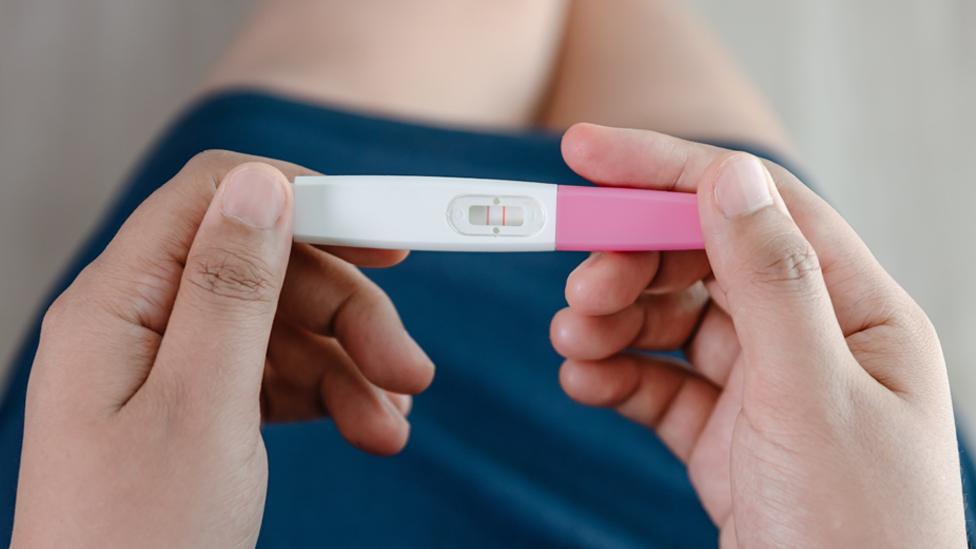The abortion buffer zone battle
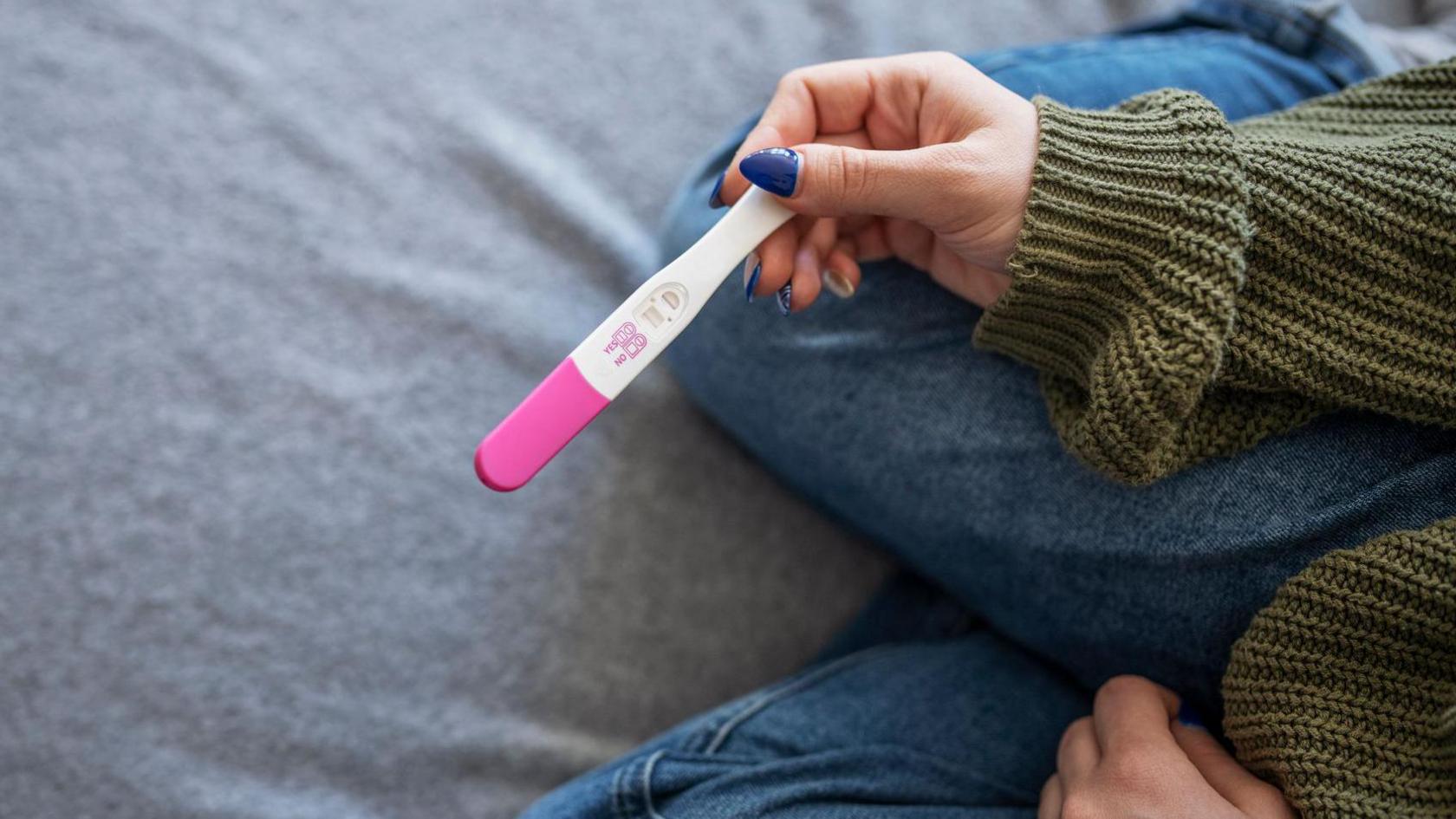
A law to introduce buffer zones outside abortion clinics in England and Wales was passed last year but is yet to be implemented
- Published
The debate over abortion has split countries for generations. While it continues to divide opinions across the world, protests outside abortion clinics in England and Wales could soon be banned under a new law. But what would that mean?
Speaking to BBC South, a nurse explained how the regular presence of protesters outside her workplace made her feel "frightened" to go to work, while another woman said campaigners outside an abortion clinic "saved my daughter's life".
‘I was dumbfounded’
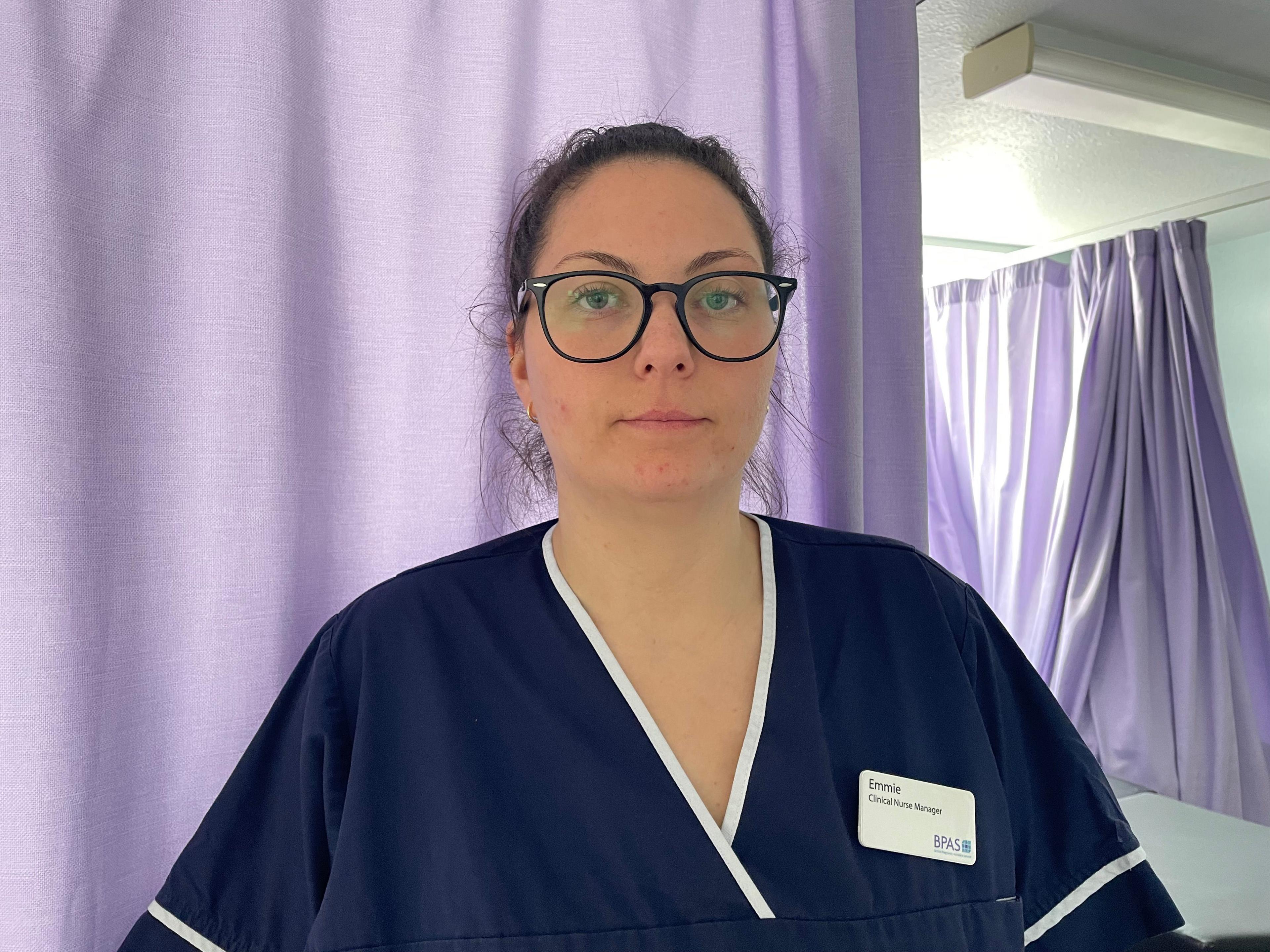
Ms Isaac has been working at the BPAS clinic in Bournemouth for five years
Emmie Isaac, a clinical nurse manager at the British Pregnancy Advisory Service (BPAS) clinic in Bournemouth, said the implementation of a buffer zone there in October 2022 eased her anxiety significantly.
She said when she started at the Ophir Road clinic five years ago she was not expecting to find protests on her way to and from work.
“I just couldn’t believe it,” she said.
"I was dumbfounded."
The 31-year-old said the protests outside the clinic soon became personal.
“The worst thing that happened for me was when I was chased to my car, being called a murderer... no-one goes to work to have that... it ends up impacting how you feel when you get home,” she said.
She said she ended up having to change her daily habits - from avoiding leaving work on her own, to dealing with a constant feeling of worry.
“It all just became really normal - frightening but really normal,” she continued.
It was after receiving reports of "alarm and distress", caused by campaigners outside the BPAS clinic, that Bournemouth, Christchurch and Poole (BCP) Council decided to introduce a temporary buffer zone, banning activities such as praying and sprinkling holy water.
Ms Isaac said things had since changed considerably.
"It’s just reduced that underlying tone of worry all of the time," she said.
"It makes going home much nicer."
She hopes the law is enforced as soon as possible.
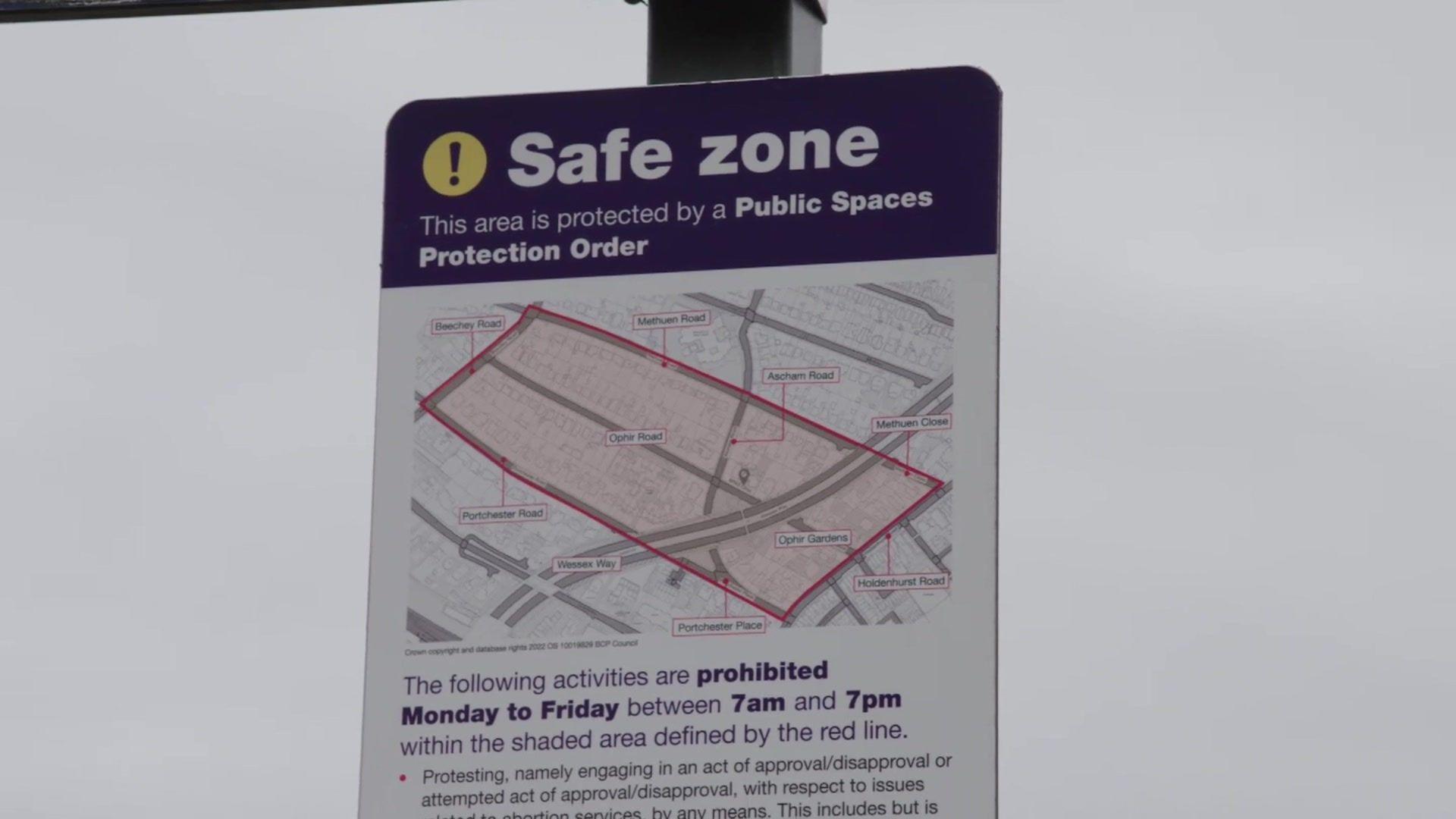
The buffer zone in Bournemouth was implemented in 2022
‘I would not have my daughter today’
However, others are concerned about the proposed restrictions.
Sarah - not her real name - said when she got pregnant in 2017 she was sofa surfing, had no money and felt she had no option but to have an abortion.
The BBC was put in touch with her by anti-abortion group Christian Concern.
Sarah said she went to an abortion clinic for an initial assessment and was given a leaflet by anti-abortion campaigners.
A few days later she decided to contact them.
Sarah said she was offered accommodation and financial support, and decided to keep her baby.
“Those women, being there, they saved my daughter’s life,” she said.
“If the buffer zone had been in place I would have gone to the clinic on that day and definitely I would have [had an] abortion.
“I would not have my daughter today and she is my best friend.”
What is the current situation?
A law to introduce so-called buffer zones in England and Wales was passed in 2023.
Once in place, demonstrations within 150m (492ft) of an abortion clinic would no longer be allowed.
Pro-choice campaigners have said the move would protect staff and clients at clinics from harassment and distress.
Anti-abortion groups said it would curb human rights.
The law was expected to be implemented in spring but the general election was called.
The new government has said it is committed to introducing buffer zones around clinics “as soon as possible”.
Further details are yet to be revealed but temporary restrictions have been put in place outside some clinics across the country over the past few years.
‘Backwards step’
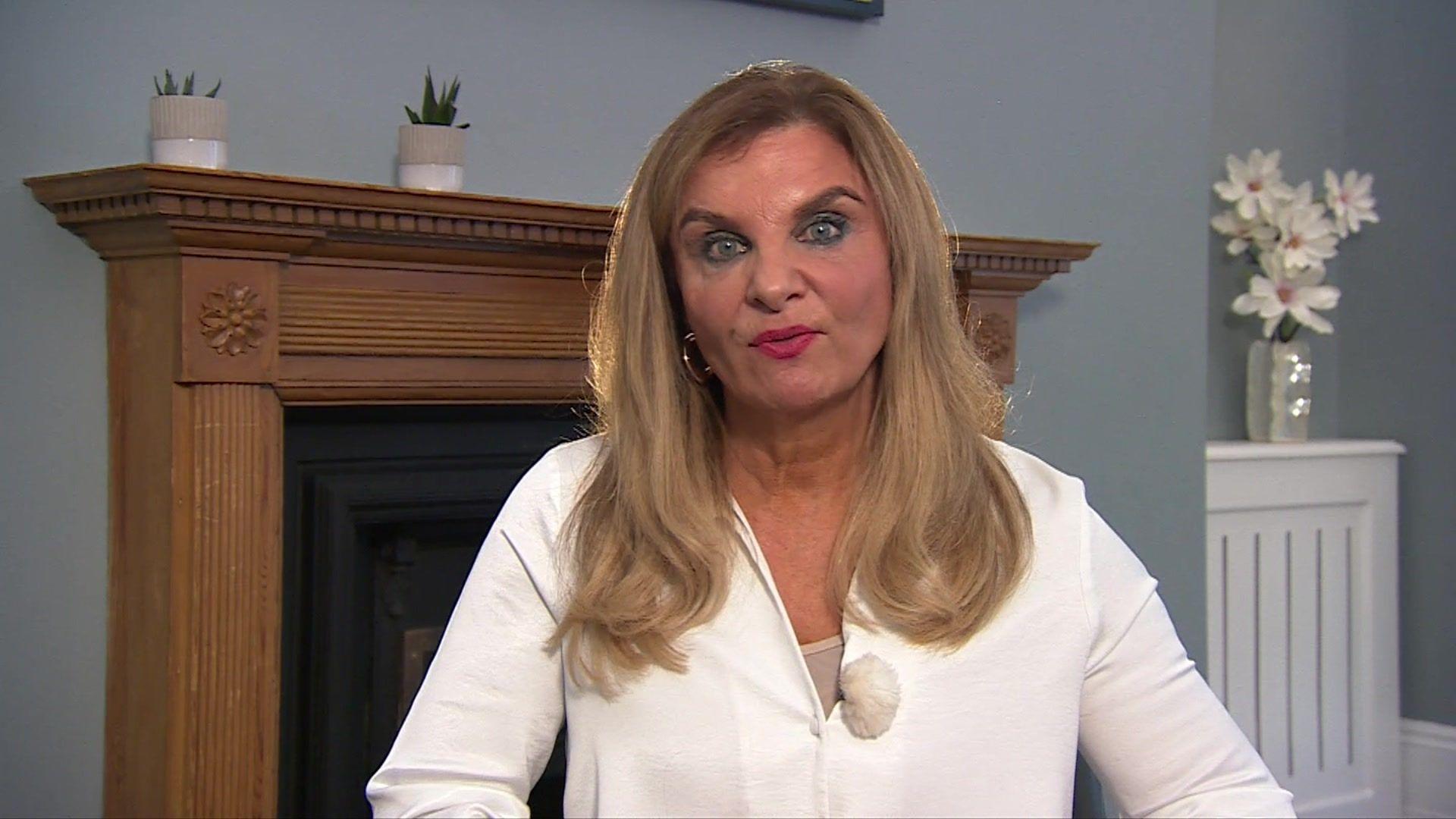
Andrea Minichiello Williams opposes the plans
Christian Concern have been opposing buffer zones for a long time.
At the end of last year, the group lost a legal challenge against BCP Council over the implementation of one in Bournemouth.
Andrea Minichiello Williams, Christian Concern’s chief executive, said the group would oppose to the enforcement of the law.
“The implementation of buffer zones around the country is a step backwards for freedom of movement, freedom of speech, freedom of religion, freedom to pray,” she said.
“We can’t criminalise the mere presence of people,” she added.
‘Abortion is legal’
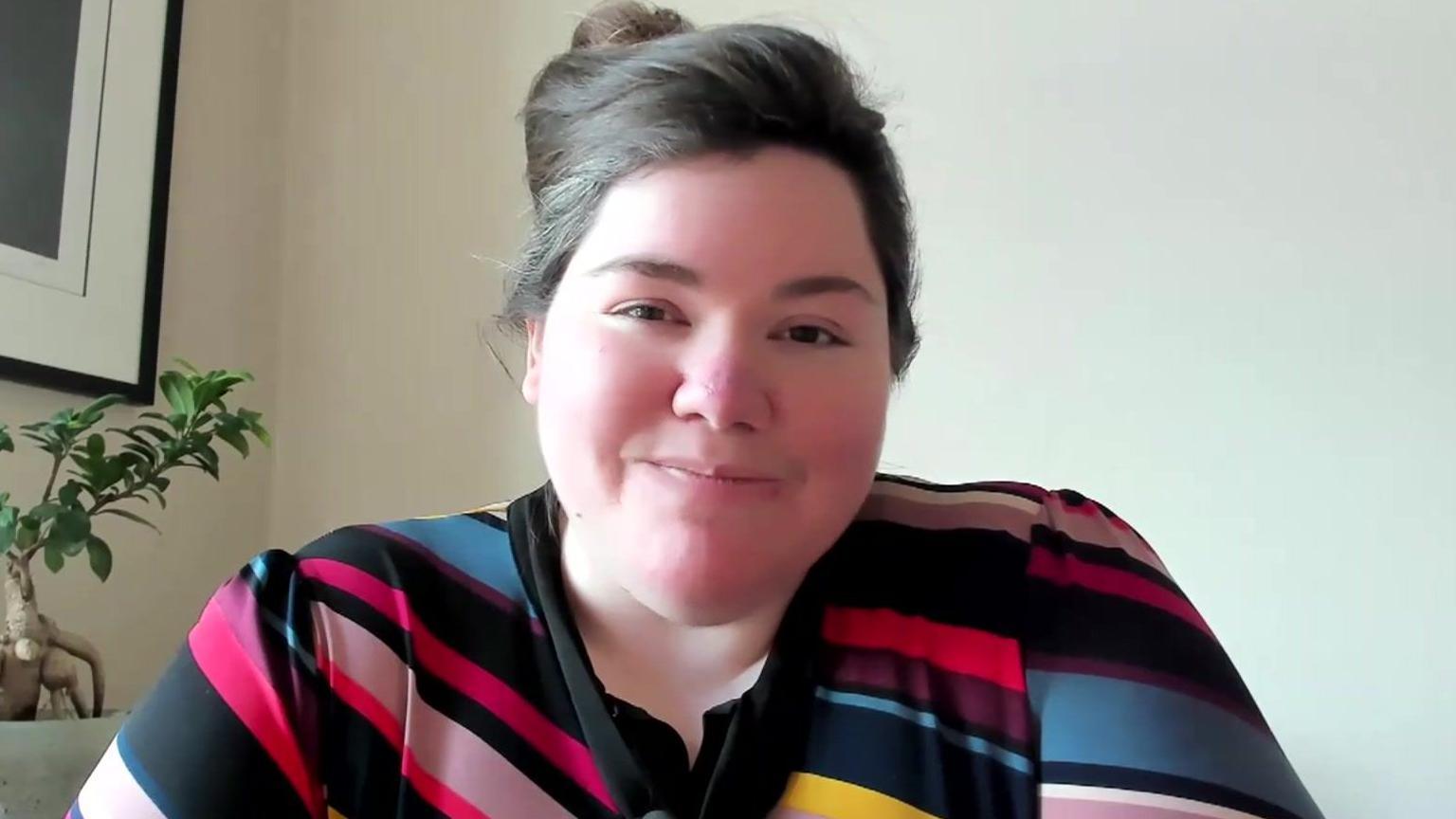
Ms Clarke reiterated that abortion was legal in England and Wales
BPAS - the leading provider of abortion advice and treatment in the UK – said temporary buffer zones helped clients and staff.
Rachel Clarke, the charity’s chief of staff, added: “Abortion in this country is legal.
"Ultimately nobody should be forced to run the gauntlet, past protesters and people who disagree with their personal legal choices that they're making, and have attention drawn to them, and [have] their medical confidentiality compromised in a way that I think we wouldn’t possibly countenance in any other kind of healthcare.”
Both BPAS and MSI Reproductive Choices UK said they provided a range of support to women, including consultations with a specialised nurse and pregnancy options counselling, before they made a final decision.
Abortions in England were illegal before the introduction of the 1967 Abortion Act.
The Home Office has said it was committed to introducing buffer zones around abortion clinics “as soon as possible”.
In a statement, it added: “Protecting women’s rights is a priority for this government, and it is vital anyone exercising their legal right to access abortion services are free from harassment and intimidation.”
Follow BBC South on Facebook, external, X (Twitter), external, or Instagram, external. Send your story ideas to south.newsonline@bbc.co.uk, external or via WhatsApp on 0808 100 2240, external.
- Published21 November 2023
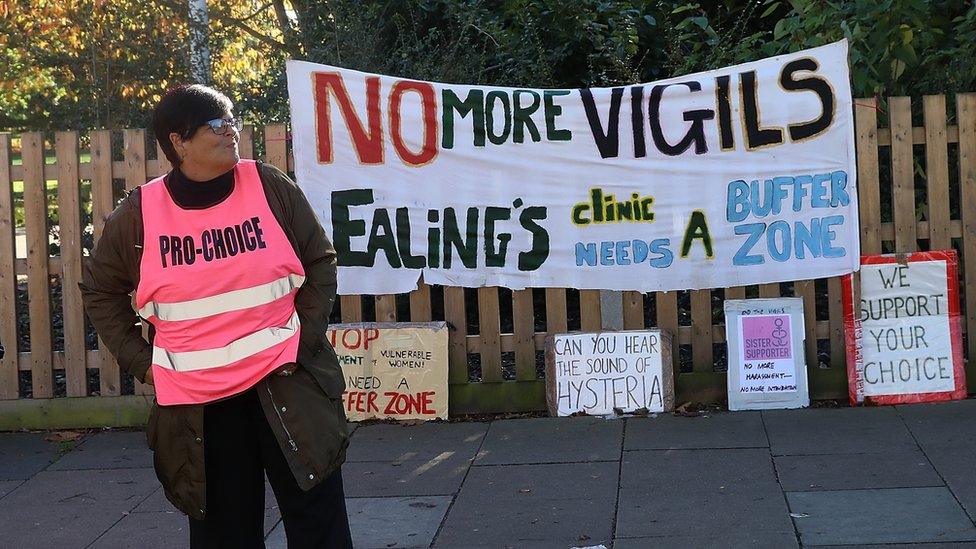
Related Links
- Published30 May 2022
